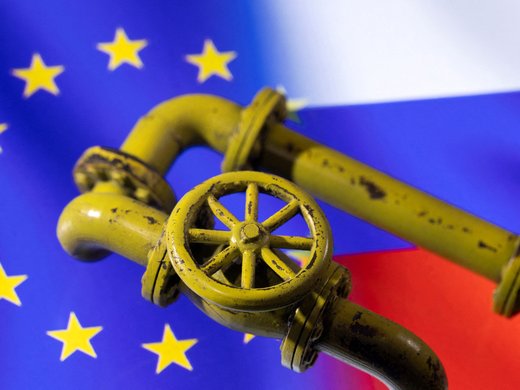It is no secret that policy makers in Washington are deeply frustrated by the inability of Japan and Korea to play nice. The two countries have many vital interests in common, remarkably few tangible material conflicts of interest, and a long list of shared attributes that almost anywhere else in the world would make them close partners and the best of friends. Both could benefit from greater cooperation across a range of issue areas, from security to trade to energy and a great deal more besides. And yet Japan-Korea relations are in tatters. Polls show Koreans and Japanese have largely unfavorable opinions of each other. One recent poll even showed that South Koreans think less unfavorably of North Korean leader Kim Jong-un than they do of Japanese prime minister Shinzo Abe, who is on barely civil speaking terms with his South Korean counterpart, President Park Geun-Hye.
There is, of course, no mystery about the cause of this sorry state of affairs, although there is radical disagreement on who is at fault. From Korea’s perspective, the root cause is what they see as a lingering imperial mentality in Japan that takes the general form of a refusal to fully acknowledge the suffering Japan inflicted on Korea in the past and a failure to repent openly and sincerely. As specific manifestations of this mentality, Koreans point to historical “revisionism” in the statements of conservative Japanese politicians and Japanese textbooks, Japan’s failure to acknowledge and properly compensate Korean “comfort women” conscripted for sexual service by the Imperial Japanese Army during World War II, and Japan’s refusal to acknowledge Korea’s title to the Liancourt Rocks (known as Dokdo in Korea and Takeshima in Japan). From Japan’s perspective, the root cause is Korea’s failure to acknowledge that Japan has, in fact, apologized many times in the past for wrongdoing, Korea’s strident and endless insistence that Japan continue to abase itself, and Korea’s inability to see that Japan not only poses no threat to its neighbours, but that it is a model global citizen when it comes to the peaceful resolution of disputes, the rule of law, and contributions to order and stability.
Seen in one light, the gulf separating Korean and Japanese perceptions is surprising and alarming. Koreans and Japanese are kindred peoples with a long history of interaction, much of which — and, in the grand scheme of things, almost certainly most of which — has been positive. They are both wealthy developed countries with democratic political systems, a high level of economic interdependence, and intense people-to-people contact. They have similar languages and traditions, and take delight in each other’s popular culture. They have, in short, a high level of familiarity. Gaps in perception are perfectly understandable among strangers, but Koreans and Japanese should know each other well enough not to misunderstand each other quite so badly.
Seen in another light, however, this “empathy gap” is no surprise at all. It is the result of perfectly normal psychology. It is entirely natural to allow one’s past experiences to colour one’s interpretation of present encounters, to see the actions of others as more coherent and more directly targeted at you than they actually are, and to infer that if people do not do what you want them to do, then they must hate you. It is also perfectly natural, when looking at the same glass, for one to see it as half full and the other as half empty, or for one to assume that it contains water while the other assumes it contains acid.
If Japan and Korea are to improve their relationship, they must begin here: by recognizing that there is nothing surprising about the fact that two people see things differently; by acknowledging that another’s perspective can be heartfelt even if you think it is wrong; and that one errs if one always assumes that someone else’s failure to agree with your perspective indicates hostility or ill intent. Sometimes people just see things differently and have trouble being brought to see them the same way. Ironically, nothing makes this point more clearly or more poignantly than a classic Japanese film: Akira Kurosawa’s Rashomon.
This alone, of course, will not solve Japan and Korea’s problem. There are also, as I have said, tangible issues in contention. In parts two and three I will explore these and offer suggestions for moving them forward. But tackling specific hard issues without laying some shared constructive groundwork in advance would doom the effort out of the gate. What are the preliminary steps that Japan and Korea should take?
First, Park and Abe should issue a joint statement that focuses exclusively on the positives: namely, that the two countries have a long list of common interests and would both benefit from deepening and broadening their cooperation. The statement should avoid addressing the hot-button issues that are responsible for the sorry state of relations at present, but should express a shared desire — and intention — to build a lasting partnership and friendship. The statement can be as short or as long, or as general or as specific, as the two leaders care to make it. They can issue it jointly in person at an appropriate venue (for example, at the forthcoming APEC summit in Beijing in November), or separately, through their offices. The key thing is simply that they set a positive tone.
Second, the two leaders should issue simultaneous individual statements acknowledging that recent difficulties in Japan-Korea relations are a function less of tangible material conflicts of interest than of different experiences and perspectives, inflamed by perfectly understandable emotions such as wounded national pride.
The Korean statement should, insofar as possible, acknowledge that Japan’s “apology fatigue” is understandable from a human point of view — even if Korea believes that Japan has yet to face the past fully and squarely (we know they think this, so there is no need to say it). It should also overtly praise Japan for its many contributions to peace and prosperity over the past several decades. The important point here is not to use the statement as an opportunity to berate Japan once again for its failings, but to signal that Koreans understand that Japan is proud and has much to be proud of.
The Japanese statement should, also insofar as possible, acknowledge that Korea’s sensitivity to historical issues is understandable, in a fashion precisely parallel to the Korean statement. Likewise, it should also praise Korea for its remarkable transformation and accomplishments. Above all, the Japanese statement should clearly indicate that Japan sees Korea as an equal — if not in terms of population or absolute GDP, but, like Japan, as a full member of an elite club: namely, liberal democratic sovereign states.
None of this requires a mea culpa, conceding a point, or prejudging the outcome of future efforts to resolve outstanding issues. Nor is any of it a sign of weakness. It is, instead, evidence of the kind of maturity, self-confidence, and good will that is required to solve hard problems. Setting the tone in this way might just well make that possible.
Next: Benoit Hardy-Chartrand on the consequences of nationalism on Chinese and Japanese public opinion


